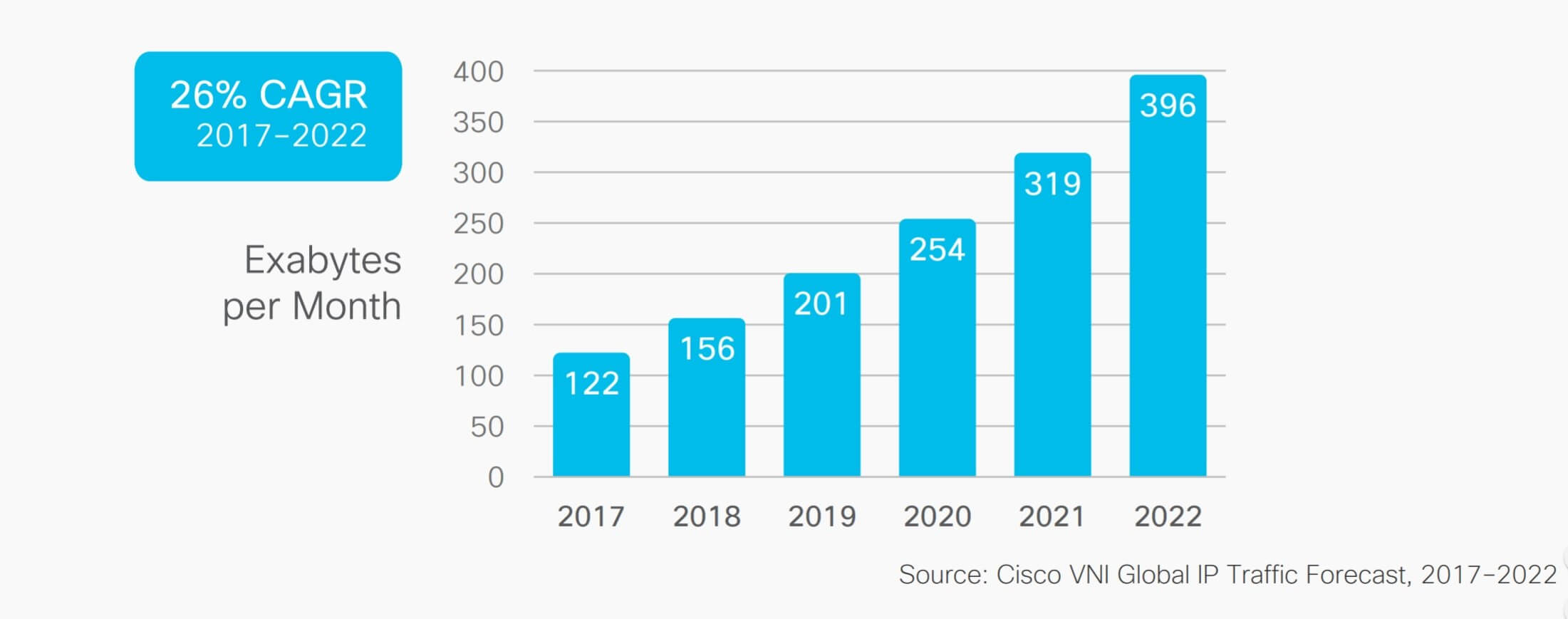In brief: It should come as no surprise to learn that people are consuming more data these days. An increasing number of households are using at least 1TB per month, and that's putting them at risk from data cap fees from ISPs.
Vendor OpenVault has found that US cable internet customers now use 268.7GB per month on average. That's up from 226.4GB at the end of June 2018 and a 33.3 percent increase over the 2017 year average. The number of power users---households that use 1TB of data or more each month---also saw a significant increase, more than doubling from 2.11 percent in 2017 to 4.12 percent in 2018.
With the rise in 4K content and the number of devices that support the resolution, along with the increasing popularity of video streaming sites, it's no surprise to see homes using more data.
Households whose ISPs impose data cap limits, such as Comcast, use 8.5 percent less data than uncapped customers as they try to avoid being fined for overuse---many are charged around $10 for every 50GB over 1TB. Those without caps are also the ones most likely to exceed one terabyte.
It had been claimed that the caps were necessary to prevent congestion, but we know this isn't true. Comcast says the limits are there in the interests of "fairness," while OpenVault, says they help cable companies avoid major network upgrades.
"Our analysis makes it clear that usage-based billing is among the most effective tools the industry has in managing consumption and reducing the need for massive capital expenditures," writes OpenVault Executive VP Josh Barstow.
OpenVault told Ars Technica that the data from December 2018 comes entirely from cable networks, so it does not include any fiber, DSL, or wireless Internet services.
Cisco's 2018 Visual Networking Index predicts that global IP traffic will increase to 396 exabytes per month by 2022--- more than has crossed global networks throughout the entire history of the internet to date---which means many users on data-capped plans will likely start paying more for their online services.

